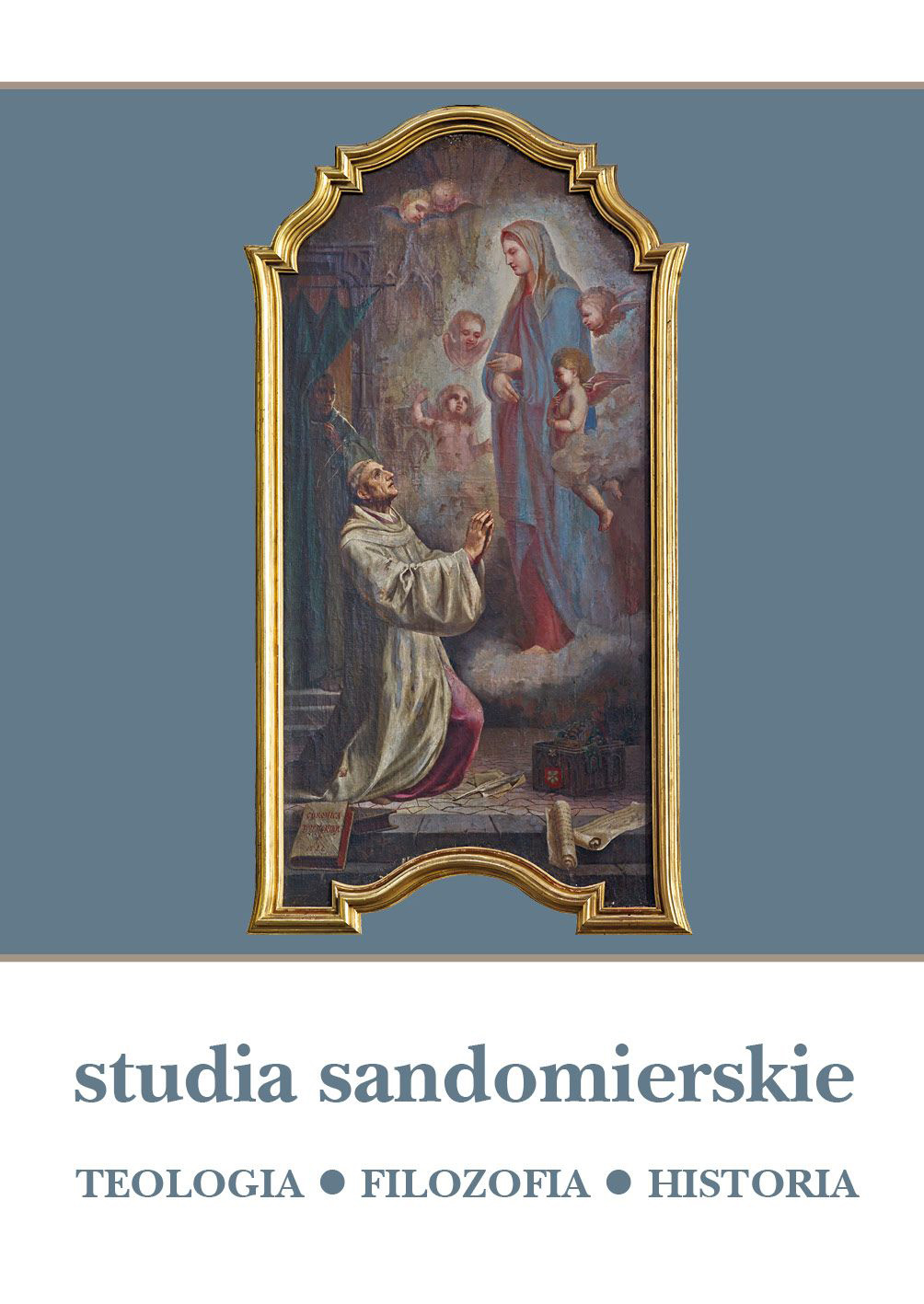Platońska doktryna wojny sprawiedliwej
DOI:
https://doi.org/10.15633/sts.2913Słowa kluczowe:
wojna sprawiedliwa, Platon, historia, filozofiaAbstrakt
Chrześcijańska koncepcja wojny sprawiedliwej należy bez wątpienia do znaczących osiągnięć cywilizacji. Owa wypracowana przez św. Augustyna koncepcja opiera się na fundamentach filozofii platońskiej. Za Platonem można podzielić wojny – a w szerszym znaczeniu konflikty i rywalizacje – na wewnętrzne, czyli toczone przez człowieka z samym sobą oraz toczone wśród swoich i przeciwko swoim, a także na zewnętrzne toczone z wrogami. Dąży się w nich do zapanowania wyższego nad niższym, i to przede wszystkim wśród wartości boskich. Czyli ma panować rozum w człowieku, filozof w państwie i mądrość między narodami. Ale rozum rządzi sprawiedliwością i harmonią, a więc pojednaniem, a nie zniszczeniem siły przeciwnej. Tylko w takiej sytuacji ma się do czynienia z człowiekiem sprawiedliwym i sprawiedliwym państwem, a takowe jest usprawiedliwione w przypadku prowadzenia wojen.
Bibliografia
Źródła drukowane
Hezjod, Prace i dnie, tłum. W. Steffen, Warszawa 1952.
Hobbes T., Lewiatan, czyli materia, forma i władza państwa kościelnego i świeckiego, tłum. C. Znamierowski, Warszawa 1974.
Platon, Charmides, w: Platon, Dialogi, t. 1, tłum. W. Witwicki, Kęty 1999, s. 33–84.
Platon, Fedon, w: Platon, Dialogi, t. 1, tłum. W. Witwicki, Kęty 1999, s. 611–714.
Platon, Gorgiasz, w: Platon, Dialogi, t. 1, tłum. W. Witwicki, Kęty 1999, s. 333–452.
Platon, Obrona Sokratesa, w: Platon, Dialogi, t. 1, tłum. W. Witwicki, Kęty 1999, s. 539–584.
Platon, Państwo, w: Platon, Państwo, Prawa, tłum. W. Witwicki, Kęty 1997.
Platon, Prawa, tłum. M. Maykowska, Warszawa 1997.
Platon, Uczta, w: Platon, Dialogi, t. 2, tłum. W. Witwicki, Kęty 1997, s. 3–90.
Sobór Watykański II, Konstytucja duszpasterska o Kościele w świecie współczesnym Gaudium et spes, w: Sobór Watykański II. Konstytucje, dekrety, deklaracje. Tekst polski. Nowe tłumaczenie, red. M. Przybył, Poznań 2002, s. 526–606.
Tukidydes, Wojna peloponeska, tłum. T. Kumaniecki, Warszawa 1953.
Opracowania
Barański Ł., Zarys postrzegania wojny na przestrzeni dziejów, „Obronność. Zeszyty Naukowe Wydziału Zarządzania i Dowodzenia Akademii Obrony Narodowej” (2012), nr 3, s. 5–19.
Georgakellos N., Empedocles of Arcagas: His Theory and the Exact Sciences, Newcastle 2019.
Hassner P., Przekraczając trzy tradycje: filozofia wojny i pokoju w perspektywie historycznej, „Res Publica” (1998), s. 49–58, publica.pl/wp-content/uploads/2018/05/Hassner_Przekroczyc-trzy-tradycje_RPN2-31998.pdf [dostęp: 2 XI 2022].
Jaffe S. N., Thucydides on the Outbreak of War: Character and Contest, Oxford 2017.
Monoson S., Socrates in Combat: Trauma and Resilience in Plato’s Political Theory, w: Combat Trauma and the Ancient Greeks, eds. P. Meineck, D. Konstan, New York 2014, s. 131–156.
Reale G., Historia filozofii starożytnej, t. 1, Od początków do Sokratesa, tłum. I. Zieliński, Lublin 2005.
Reginia-Zacharski J., Wojna w świecie współczesnym. Uczestnicy, cele, modele, teorie, Łódź 2014.
Rutkowski P., Konflikty i wojny w kontekście wybranych myśli filozoficznych od starożytności do renesansu, „Zeszyty Naukowe Ruchu Studenckiego” (2011), nr 1, s. 119–125.
Syse H., The Platonic Roots of Just War Doctrine: A Reading of Plato’s Republic, „Diametros” (2010), no. 23, s. 104–123.
Świniarski J., Marcinkowski M., Rola wojny w życiu społecznym. Część I – Wojna w historii myśli przednowożytnej, „Zeszyty Naukowe WSOWL” (2012), nr 2 (164), s. 192–205.
Pobrania
Opublikowane
Numer
Dział
Licencja

Utwór dostępny jest na licencji Creative Commons Uznanie autorstwa – Użycie niekomercyjne – Bez utworów zależnych 4.0 Międzynarodowe.
Autorzy publikujący w czasopiśmie udzielają jego wydawcy zgody o następującej treści:
- Autor zachowuje autorskie prawa majątkowe do utworu, a jednocześnie udziela wydawcy czasopisma zgody na jego pierwszą publikację w wersji drukowanej i wersji online na licencji Creative Commons Uznanie autorstwa 4.0 Międzynarodowe oraz zgody na wykonywanie opracowań, w tym przekładów.
- Autor ma możliwość udzielania zgody niewyłącznej na opublikowanie utworu w wersji, która ukazała się w czasopiśmie (np. zamieszczenia go w repozytorium instytucjonalnym lub opublikowania w książce), wraz z informacją o jego pierwszej publikacji w czasopiśmie.
- Autor może umieścić swój utwór online (np. w repozytorium instytucjonalnym lub na swojej stronie internetowej) jeszcze przed zgłoszeniem utworu do czasopisma.

